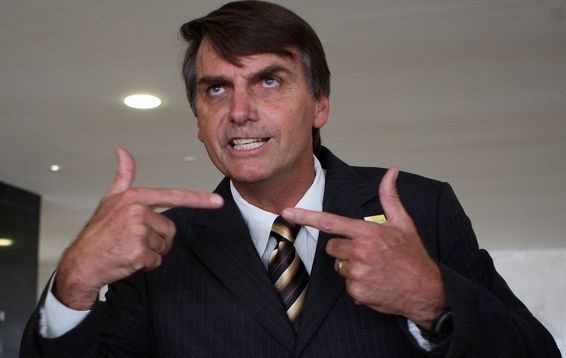For abuse of political power, misuse of the media and violation of the principle of isonomy, right-wing extremist Jair Bolsonaro could be banned from political life and disqualified from holding public office for eight years.

Osvaldo Cardosa
The Democratic Labour Party (PDT) accuses former president Jair Bolsonaro of abuse of political power and misuse of the media at a meeting with ambassadors at the Alvorada Palace (official residence) on 18 July 2022.
In the so-called Action for Electoral Judicial Investigation (AIJE), the PDT is asking the Superior Electoral Court (TSE) to declare Bolsonaro and General Walter Braga Netto, who was a vice-presidential candidate on his ticket for the October ballot, ineligible. According to the political organisation, the meeting between the then president and the diplomats was broadcast live on TV Brazil and the social networks YouTube, Instagram and Facebook, which kept the content on the internet for later viewing.
He denounces that, during the talk show, Bolsonaro claimed, without presenting any evidence and using false arguments, distorted and rejected by the TSE, that the electronic voting system, used successfully in the South American giant since 1996, could be rigged and would not be auditable.
According to the party, the former army captain attacked ministers of the TSE and the Supreme Federal Court (STF) at the event and claimed, again without presenting any evidence, that the results of the 2022 general elections, proclaimed by the Electoral Justice, would not be reliable.
 Furthermore, the PDT considers that there was a violation of the principle of isonomy between the potential presidential candidates.
Furthermore, the PDT considers that there was a violation of the principle of isonomy between the potential presidential candidates.
He argues that the fact that the meeting took place in the official residence of the Presidency of the Republic and was organised through the official apparatus of the Planalto Palace (the seat of the executive branch) and the Ministry of Foreign Affairs constituted an abuse of political power.
On 30 August, the TSE unanimously endorsed the precautionary measure granted by the then electoral co-regent general, Mauro Campbell Marques, who determined, at the request of the PDT, the exclusion from social networks and digital platforms of the content that emerged from the meeting between the former head of state and the ambassadors.
In view of these events, Braga Netto also responds to the AIJE and the party’s lawyer, Waber Braga, considered at the first session on 22 June that each event “in itself represents an unavoidable burden on democracy”.
According to Braga, Bolsonaro’s meeting with ambassadors had a “clear deviation of purpose to demoralise institutions and internationally”.
He stressed that there had been “a clear attempt at a military coup, a coup d’état”, invoking the seriousness of the far-right politician’s conduct.
 In the same vein, the Electoral Public Prosecutor’s Office again defended Bolsonaro’s conviction and cited the (anti-democratic) coup attacks of 8 January in Brasilia as a result of the distrust of the electoral system created in part of society by the attacks of the former paratrooper.
In the same vein, the Electoral Public Prosecutor’s Office again defended Bolsonaro’s conviction and cited the (anti-democratic) coup attacks of 8 January in Brasilia as a result of the distrust of the electoral system created in part of society by the attacks of the former paratrooper.
Before going to the Supreme Court, the ex-military man’s legal staff should exhaust all possibilities of appeal in the Electoral Justice and, in the event of a conviction, this could be challenged by means of the so-called embargoes, tools that cannot modify the ruling but could clarify elements of the sentence. For now it is known that 47% of Brazilians support the sentence against the ex-president, according to research by the Quaest institute and the Genial platform, which also indicates that 43% of those questioned are against the sanction and the other 10% could not answer. PL
(Translated by Cristina Popa – Email: gcpopa83@gmail.com) – Photos: Pixabay












.jpg)












